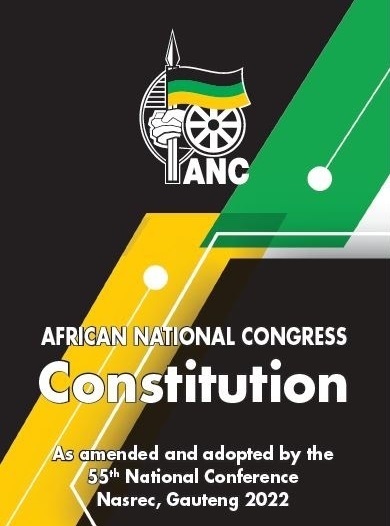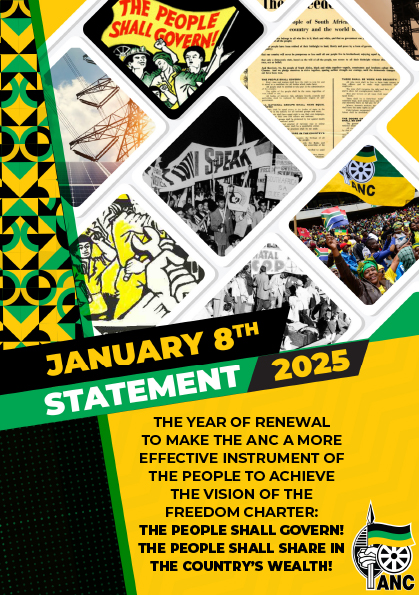Programme Director: MEC Kontsiwe
King Vululwandle, all kings and the entire Traditional leadership
Mayor of Makana and Sarah Baartman DM
Other Members of the Provincial Government Executive Council present
Deputy Speaker of our legislature , MPLS and MPs
Mayors , Speakers present and all Cllrs
Religious leaders
Our hosts the Chancellor of Rhodes University and Vice Chancellor of Rhodes University,
Secretary General of Community of African Nations in South Africa (CANISA)
Our honoured guests
The broader community members of Makhanda and the people of the Eastern Cape
Good afternoon.
Today is a significant day in our province, as we join fellow Africans across the continent to celebrate the birth of the OAU, the African Union’s predecessor. This body was established to end colonialism, a creation of the West whose impact is still prevalent today in our continent.
This objective of the OAU was aptly captured by the first President of the OAU Haile Selassie, the Emperor of Ethiopia when he delivered his remarks at the inaugural OAU conference on May 25, 1963. Haile Selassie said:
“Our liberty is meaningless unless all Africans are free. Our brothers in the Rhodesia, in Mozambique, in Angola, in South Africa, cry out in anguish for our support and assistance. We must urge on their behalf their peaceful accession to independence. We must align and identify ourselves with all aspects of their struggle. It would be betrayal were we to pay only lip service to the cause of their liberation and fail to back our words with action. To them we say, your pleas shall not go unheeded. The resources of Africa and of all freedom-loving nations are marshalled in your service. Be of good heart, for your deliverance is at hand.”
At the same 1963 Addis Ababa conference, the late President of Ghana, Kwame Kruma said: “On this continent, it has not taken us long to discover that the struggle against colonialism does not end with the attainment of national independence. Independence is only the prelude to a new and more involved struggle for the right to conduct our own economic and social affairs; to construct our society according to our aspirations, unhampered by crushing and humiliating neo-colonialist controls and interference.”
These were indeed profound words that showed the character and determination of the leaders who once walked our mother land to end colonialism and apartheid in our continent. Then in 1994 after South Africa had attained democracy, President Nelson Mandela had an occasion to address the OAU in Libya in 1994. He said: “If freedom was the crown which the fighters of liberation sought to place on the head of Mother Africa, let the upliftment, the happiness, prosperity, and comfort of her children be the jewel of the crown.”
I thought it’s prudent to preface my welcome remarks for today by revoking the words of the sons of our continent who identified their mission and fulfilled it. Part of the reason I have done that is that I have observed a very disturbing and unfortunate tendency by present day generation of Africans who want to forget some of the cruellest systems that once engulfed our continent. At times our very colonisers are at the forefront pushing a narrative that we must forget the past and focus on the future. But what kind of a future can we build without acknowledging our painful colonial past? I mean impact of colonialisation is evident today, physically in the false borders that were created to divide us and psychologically in how we relate to each other as fellow Africans.
What kind of a future can we build when the very land question that was at the centre of colonalisation is still not resolved? What kind of a future can we build when we the citizens of this natural resource endowed continent of Africa are the most affected by poverty, diseases, unemployment, and inequality. What kind of a future can we build when some nations of our continent such as Sudan are embroiled in never ending conflicts?
As we meet here to celebrate Africa Day, we must remember some of the heroes and heroines who fought against colonialism. Among them is Makhanda who fought fierce battles with settlers around this area. His life story and that of warriors such as Maqoma should be told to worldwide audiences as part of preserving our history. It was these early warriors who laid the foundation for the generation that fought against apartheid where we saw political organisations such as the ANC and PAC forming military wings to protect our people against the brutal regime of apartheid. In those military wings we had courageous cadres such as recently departed Comrade Mzwandile McDonald Masala of MK and comrade Nontente Kamteni of Poqo. We salute all of them for contributing to the decolonialisation project of our country and continent.
As we mark the 60th commemoration of the establishment of the OAU, we must ask ourselves whether the founding fathers of the OAU would be happy about how we have been leading the continent? More importantly will they be happy about socio-economic progress in the continent? It is imperative that all of us as Africans work together for the full realisation of the African Continental Free Trade Area (AfCFTA) commitments that would usher in economic prosperity in our continent. It is us Africans that must make AfCFTA work.
As we reflect on that we must draw strength from the vision set forth by the African Union and NEPAD for the year 2063. This vision envisions an Africa where all citizens enjoy the full realization of their human rights and where equality thrives.
The history of South Africa serves as a poignant reminder of the immense power of perseverance and the indomitable human spirit. We have overcome the shackles of apartheid and created a democratic nation that upholds the principles of equality, regardless of one’s race, sexual orientation, or social standing. Today, we stand as a testament to the fact that no challenge is insurmountable when we unite in our pursuit of justice.
However, as we celebrate our achievements, we must also confront the realities that still persist. Poverty, youth unemployment, and inequality continue to cast a dark shadow over the lives of many of our fellow citizens. We cannot rest until every South African has an equal opportunity to succeed and thrive. Our commitment to the AU and NEPAD’s vision compels us to address these disparities head-on.
In the Eastern Cape Province, we acknowledge the discrepancies that exist between different communities and regions within our borders. We recognize that these disparities not only violate the human rights of our citizens but also hinder our collective progress. It is our solemn duty to bridge the gap between the rich and the poor, the urban and the rural, and to provide equal opportunities for all.
To achieve this, our government remains steadfast in its dedication to increasing access to economic opportunities, particularly for our youth, women, and people with disabilities. We understand that economic empowerment is a fundamental aspect of realizing human rights and eradicating poverty. We will reduce barriers to entry and promote successful entrepreneurship, allowing small businesses to thrive and contribute to our economic development.
Moreover, we are acutely aware of the grave social challenges that plague our society. High crime rates, brutal attacks against the elderly, gender-based violence, and violations of the rights of the LGBT+ community are abhorrent and antithetical to our vision of a just society. We vow to strengthen our security cluster, ensuring the safety and protection of all our citizens.
We will not rest until every person, regardless of age, gender, or sexual orientation, feels secure and can live their lives without fear. But our commitment does not end there. We will strive to provide our people with access to quality education, healthcare, water, sanitation, and electricity. These basic rights are the building blocks of a just and prosperous society.
As we move forward, we must never forget the struggles of our past. Our history, with all its pain and triumph, must guide us in shaping a brighter future. We must remember that our responsibility extends beyond the Eastern Cape Province. We have a duty to contribute to the economic development and growth of our beloved South Africa and Continent as a whole.
Today, let us recommit ourselves to the ideals of human rights and equality that have guided us thus far. Let us be the torchbearers of progress, the champions of justice, and the architects of a future where every individual can realize their full potential. By working together, we can build a province and a country that celebrates, respects, and protects the human rights of all.
Thank you.





